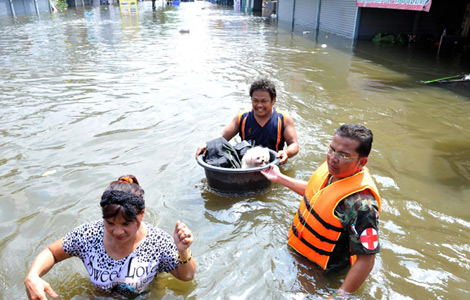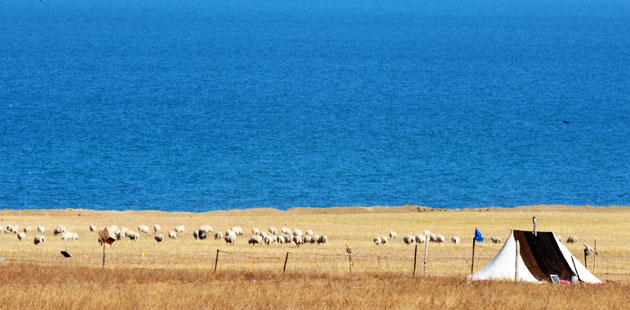Iraq rejects US plea to keep bases after withdrawal
Updated: 2011-10-22 07:22
(Agencies)
|
|||||||||||
WASHINGTON - US President Barack Obama vowed on Friday to pull all US troops from Iraq this year, symbolically ending the war but dashing US hopes of leaving a few thousand troops to buttress a still shaky Iraq.
After months of negotiations with officials in Baghdad failed to reach an agreement to keep possibly thousands of US troops in Iraq as trainers, Obama announced he would stick to plans to pull out the remaining force of 40,000 by year's end.
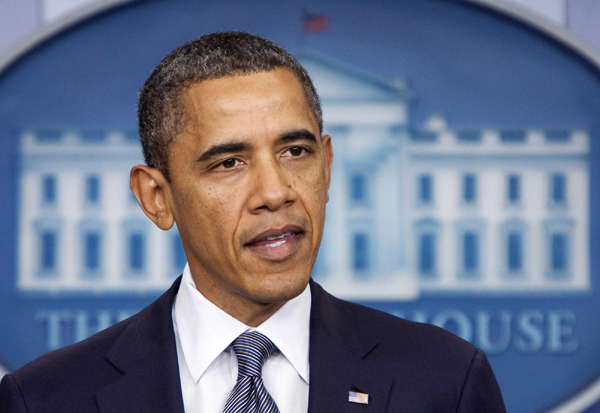 |
|
US President Barack Obama announces the withdrawal of US troops from Iraq in the briefing room of the White House in Washington Oct 21, 2011. Obama on Friday said the United States will fulfill its promise by pulling troops out of Iraq by year-end. [Photo/Agencies] |
"After nearly nine years, America's war in Iraq will be over," Obama told reporters.
The announcement is a milestone more than eight and a half years after the Bush administration led the invasion to topple Saddam Hussein based on warnings of weapons of mass destruction that turned out not to exist.
Obama, eyeing a 2012 re-election campaign likely to be fought over his handling of the US economy, is looking to wind down a decade of war in the Muslim world that did lasting damage to the US image worldwide and stretched its military and budget to the brink.
In Iraq, where the US force peaked at around 190,000 during the height of President George W. Bush's troop surge in 2007, almost 4,500 US soldiers have died and the war has cost US taxpayers over $700 billion in military spending alone.
While Washington has hailed Iraq's halting progress, especially as tumult has swept the Middle East, its political system remains gripped by perennial deadlock on issues dividing a religiously and ethnically fractured country.
Violence there is a far cry from the sectarian slaughter of 2006-07, but Iraq still suffers daily attacks from a stubborn insurgency allied with al-Qaida, and from Shi'ite militiamen.
"I wish we had been able to make more progress in resolving the internal differences while our troops are still there," said retired Gen. Brent Scowcroft, who was national security advisor to President George H.W. Bush, and became a prominent Cassandra before the Iraq war.
SHARED VISION FOR IRAQ?
Obama's announcement in the White House briefing room was freighted with political overtones.
The president, who was an early opponent of the war and campaigned on a promise to end it, repeated his mantra that "The tide of war is receding."
But prominent Republicans criticized the president. Sen. John McCain told Reuters the decision went against the advice of US military commanders, could embolden Iran and likely will be met with alarm by Afghan President Hamid Karzai, who is already concerned about US commitment to his country.
"In retrospect, I don't think the political side of the Obama administration ever had any serious intentions of keeping a residual force there because none of their actions were serious," said McCain, ranking GOP member of the Senate Armed Services Committee.
Obama made his announcement after a video conference with Iraqi Prime Minister Nuri al-Maliki. He said the two leaders agreed to stick to an earlier arrangement to pull the remaining 40,000 US troops by year's end.
About 160 US soldiers will remain behind under State Department authority to train Iraqi forces along with a small contingent of soldiers guarding the US Embassy. There will also likely be a US special operations presence in Iraq.
But the announcement underscores the gaps that remain between US and Iraqi priorities and political realities.
Earlier this week, US Defense Secretary Leon Panetta said American and Iraqi officials were continuing discussions that might permit his soldiers to stay beyond the December 31 deadline.
The prospect of extending the troop presence was very sensitive for Iraq's fractured political elite.
Maliki, heading a tenuous coalition including politicians vehemently opposed to foreign troops, eventually advocated a training presence but rejected any legal immunity for US soldiers. Those terms were deemed unacceptable in Washington and in the end there was no deal to be had.
"This has been inevitable," said David Mack, a former US ambassador in the Middle East.
"National security strategists in both Washington and Baghdad made a strong case for keeping US military forces beyond 2011, but the domestic politics in both countries were against it," he said.
US MILITARY ROLE
The US military role in Iraq has been mostly reduced to advising the security forces in a country whose military was rebuilt from scratch following the 2003 invasion.
Lingering weaknesses in Iraq's military capability would have been one reason to keep a larger US troop presence.
Another was Iran. Chronically critical of Iran's nuclear program, Washington is especially sensitive to the prospect of an expansionist Iran following its recent allegations about a foiled Iranian plot to kill the Saudi ambassador in Washington.
"We remain very concerned that Iran is meddling, not just in the affairs of Iraq but of other countries in the region. And that's unacceptable," Pentagon spokesman George Little said this week when discussing a possible extended troop presence.
Brian Katulis, a security expert at the Center for American Progress in Washington, said the specter of Tehran dictating decisions to Baghdad was a red herring.
"Iranian influence is overstated," he said. "And it's not as if a few thousand US troops was going to be a linchpin."
Both sides appeared to leave the door open to revising the arrangement announced on Friday. An Iraqi government advisor said after Obama's remarks that officials from both countries would discuss post-2011 trainers at their next meeting.
Even without soldiers, the US presence will remain substantial. US officials say the embassy in Baghdad, an imposing, fortified complex by the Tigris River in Baghdad's Green Zone, will be the largest in the world.
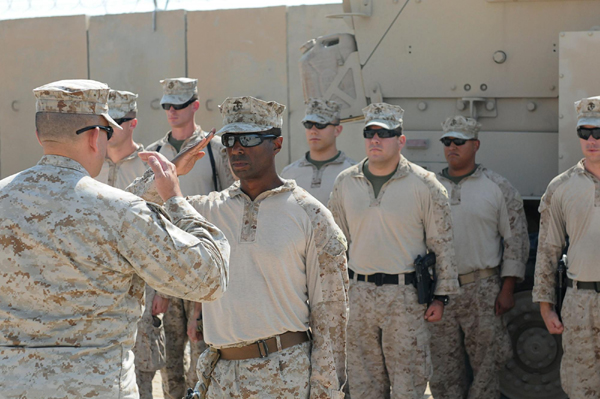 |
|
US Major Monte Powell (R), team chief of Iraqi Marine Training Team 03, takes charge of his 13 US Marines trainers during a final formation before leaving the Iraqi city of Umm Qasr. in this handout photograph taken on Oct 14, 2011 and obtained on Oct 21, 2011. [Photo/Agencies] |
Hot Topics
Libya conflict, Gaddafi, Oil spill, Palace Museum scandal, Inflation, Japan's new PM, Trapped miners, Mooncake tax, Weekly photos, Hurricane Irene
Editor's Picks
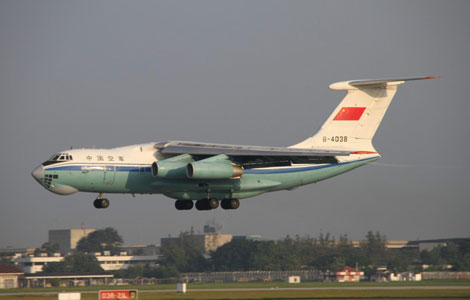
|

|

|

|

|
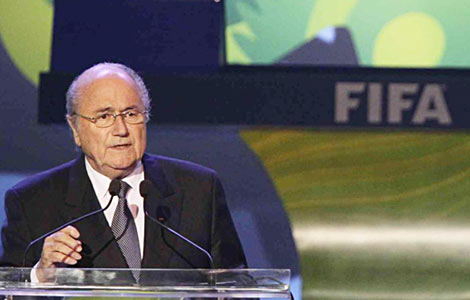
|




